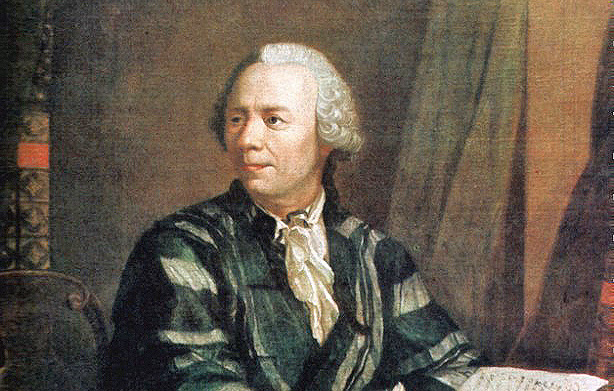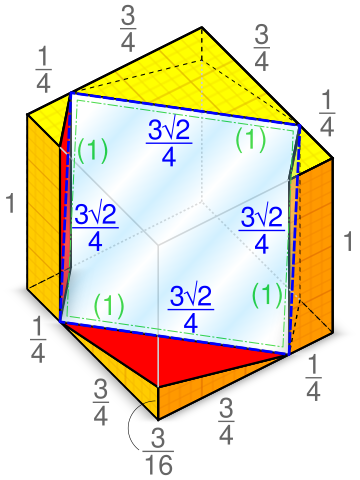After performing in a revival of George Bernard Shaw’s play Candida, Cornelia Otis Skinner received a telegram from the author: EXCELLENT. GREATEST.
She wired back: UNDESERVING SUCH PRAISE.
He responded: I MEANT THE PLAY.
She replied: SO DID I.
After performing in a revival of George Bernard Shaw’s play Candida, Cornelia Otis Skinner received a telegram from the author: EXCELLENT. GREATEST.
She wired back: UNDESERVING SUCH PRAISE.
He responded: I MEANT THE PLAY.
She replied: SO DID I.
A good example of the effect of misplacing a comma is to be found in the ancient oracle — ‘Thou shalt go thou shalt return never by war shalt thou perish.’ By one way of placing the commas, the consulter of the oracle was forbidden to go upon the purposed expedition; by reading it his own way, he went and perished.
— W.T. Dobson, “Literaria,” Dublin University Magazine, August 1873
You and a friend agree to meet on New Year’s Day at the Mozart Café in Vienna. You fly separately to the city but are dismayed to learn that it contains multiple cafés by that name.
What now? On the first day each of you picks a café at random, but unfortunately you choose different locations. On the second day you could both go out searching cafés, but you might succeed only in “chasing each other’s tails.” On the other hand, if you both stay where you are, you’ll certainly never meet. What is your best course, assuming that you can’t communicate and that you must adopt the same strategy (with independent randomization)?
This distressingly familiar problem remains largely unsolved. If there are 2 cafés then the best course is to choose randomly between them each day. If there are 3 cafés, then it’s best to alternate between searching and staying put (guided by certain specified probabilities). But in cases of 4 or more cafés, the best strategy is unknown.
In 2007 a reader wrote to the Guardian, “I lost my wife in the crowd at Glastonbury. What is the best strategy for finding her?” Another replied, “Start talking to an attractive woman. Your wife will reappear almost immediately.”
diallelous
adj. involving circular reasoning
On my challenging an ingenious friend to define time and space, he answered, ‘Time is the condition of two things existing in the same space. Space is the condition of two things existing in the same time.’ This is clever, pointed, and true, but, as may easily be seen, diallelous.
— Francis Garden, A Dictionary of English Philosophical Terms, 1878
Captured by the North Vietnamese in 1965, Navy pilot Jeremiah Denton was forced to participate in a propaganda interview to be broadcast in the United States. Pretending to be oppressed by the television lights, he blinked the word “T-O-R-T-U-R-E” in Morse code — alerting U.S. Naval Intelligence for the first time that American prisoners were being tortured.
In his Investigator’s Guide to Steganography (2003), Gregory Kipper notes that captured soldiers would sometimes use hand signals to transmit messages during photo ops; “often, these gestures were airbrushed out by the media.”
The members of the Flemish Academy, of Anvers, recently determined to frame a word which would be readily intelligible to all who understand the language of Flanders and who had ever seen a horseless carriage, and the result was that after much deep thought they framed the following word: Snelpaardelooszonderspoorwegpetrolrijtuig. This euphonious word signifies ‘a carriage which is worked by means of petroleum, which travels fast, which has no horses and which is not run on rails.’ This is, from one point of view, a fine example of multum in parvo, but it may be questioned whether one extraordinarily long word is preferable to half a dozen short words.
— Georgetown [Colo.] Herald, May 19, 1899

Staggering fact: Science historian Clifford Truesdell estimates that “[a]pproximately one-third of the entire corpus of research on mathematics and mathematical physics and engineering mechanics published in the last three-quarters of the eighteenth century” was written by a single person, Leonhard Euler.
The work of compiling Euler’s scientific writings has been going on since 1908 and will fill 81 volumes when complete. Mathematician William Dunham writes, “A typical volume of the Opera Omnia is large, running from 400 to 500 pages — although some contain over 700. In size and weight, such a volume resembles its counterpart from (say) the Encyclopedia Britannica. No one short of an athlete could carry more than five or six at once, and to cart off the entire collection — over 25,000 pages in all – would require a forklift.”
Laplace wrote, “Read Euler, read Euler, he is the master of us all.”

In the 17th century, Prince Rupert of the Rhine wondered whether one cube might pass through another of the same size. John Wallis showed that the answer is yes, and, perversely, Pieter Nieuwland showed a century later that one cube can even accept another larger than itself — fully 6 percent larger in the optimal case. The diagram above shows the dimensions (blue) of a square tunnel through a unit cube that will accommodate a second unit cube (green) with room to spare.
Remarkably, all five Platonic solids have the “Rupert property” — a regular tetrahedron, for example, will fit through an identical tetrahedron if the hole is contrived cleverly enough. Whether every convex polyhedron can perform this unlikely feat is an open question.
“Many highly intelligent people are poor thinkers. Many people of average intelligence are skilled thinkers. The power of a car is separate from the way the car is driven.” — Edward de Bono